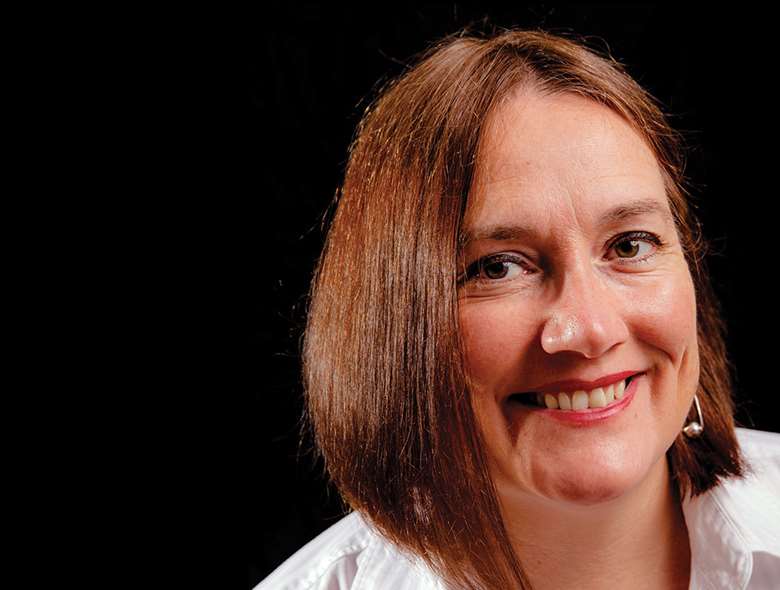Charity's guiding light: Julie Bentley, chief executive of Action for Children
Derren Hayes
Tuesday, February 26, 2019
Derren Hayes meets Julie Bentley, chief executive of Action for Children.

Former Girlguiding boss Julie Bentley last summer became chief executive of Action for Children, one of the largest children's charities in the UK. She succeeded Sir Tony Hawkhead, who stepped down in February 2018, joining at a challenging time for the charity. Action for Children's 2017/18 annual report showed income from children's centres fell by £14m over that year, leading to staff cuts and fewer clients.
Why did you want the job?
It's one of the largest and most well established children's charities in the UK. It has more than 500 services, and supports 300,000 children and young people each year. I've had a long interest in social justice and have a personal interest in working with and helping children and young people.
I have always worked in the sector and started off as a youth worker, and have worked with children on the margins of society. I saw how having trusted adults could transform lives. I grew up in a loving home, but in a poor working-class area and was fortunate to have good mentors in my youth.
JULIE BENTLEY CV
- August 2018 - Chief executive, Action for Children
- 2012 - Chief executive, Girlguiding
- 2007 - Chief executive, Family Planning Association
- 2004 - Chief executive, Suzy Lamplugh Trust
- 2000 - Director of corporate services, Alcohol Recovery Project
- 1990s - Started as a youth worker, children's drug and alcohol worker and assistant director of Charterhouse in Southwark
What have you focused on in the first six months?
I have spent a lot of time visiting services across the UK, meeting children and families, and colleagues. I'm a passionate champion of the charity sector and have worked in it all my life, but I've been really struck by the amount of pride and passion of the staff.
Their commitment to the children and young people they work with - whether that is in London or Scotland - I have found really impressive. It's a good thing for a chief executive to come into an organisation and feel so proud about what your colleagues are doing.
Income from children's centres has declined. Is there anything you can do to counter that?
We need to get smarter about how we use resources, about how we work together with other organisations and about how we use our voice to impact change. We maybe need to be bolder and braver in doing that - when speaking to decision makers and campaigning on behalf of children and young people to influence policy.
We're also developing new models of delivering children's centres. For example, in Devon, we have a long-term contract for a whole range of services, which also involves helping the community to develop their own support through volunteers. The long-term funding means that it is more flexible and it has brought together a number of providers under one roof.
Are you going to speak louder about children's centre cuts?
Children centres are a vital service, but funding has reduced by half. They can be a life line for families offering early intervention to keep them on track. With less resources going into prevention, we're really concerned that more money will go into crisis intervention.
We have banded together with the Local Government Association to lobby for more funding for children's centres in the Comprehensive Spending Review.
Does government need to give greater policy lead in this area?
We need something, rather than just inertia - children's centres appear to have been kicked into the long grass. There is a new ministerial working group looking at children's centres, which I hope will be looking at the evidence and understand the importance of prioritising the early years.
We want the ministerial group to back more frequent health visitor checks in the early years and to reinstate Ofsted inspections of children's centres.
Has Action for Children not bid for contracts because insufficient money was offered?
We always look at our own costs and the quality of service we want to deliver. There has been occasions where contracts simply cannot be delivered to a quality that is acceptable to us within the funding envelope. Councils are in a difficult scenario, and sometimes we lose a bid to a provider that says they can deliver it within that envelope and then can't. For smaller charities particularly, it is very difficult sometimes to not bid.
Are you looking to grow other revenue streams?
It is in our business plan to grow other sources of income. We're looking to improve fundraising and we want to use our 150th anniversary this year to remind the public who we are and why they need our support. There is a similarity with the situation I found at Girlguiding. We upped the profile of Girlguiding by talking proudly about it and using the guides to tell their own stories. Girlguiding was - and Action for Children is - a hidden diamond and my job is to help the public understand what we do.
If we want to get better at fundraising and attracting corporate support, it's vital people know who we are. One example of a corporate partnership has been our Blues programme, where we have partnered with Royal Mail to provide cognitive behavioural therapy for pupils in 85 schools. Royal Mail is funding the programme with £2m from 2017 to 2020, and we hope 8,000 young people will complete it.




